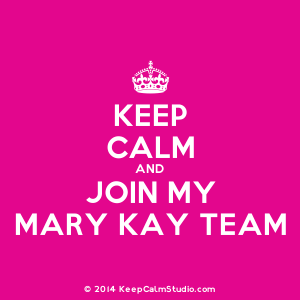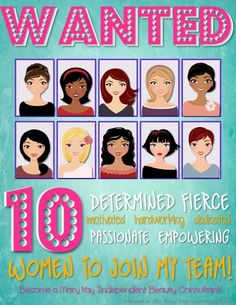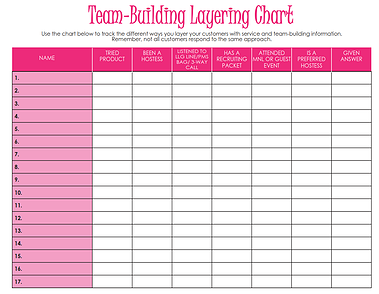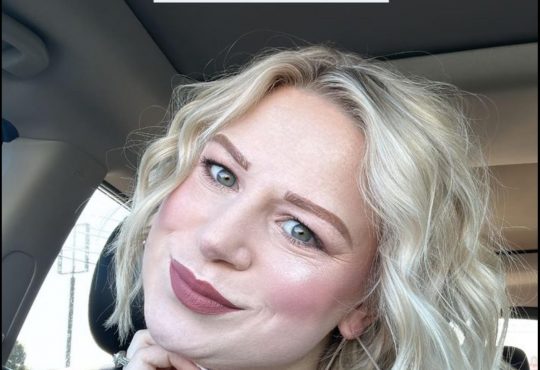Comments From Mary Kay Inc. Executive Rhonda Shasteen
The following are notes taken by a Mary Kay sales director on Chief Marketing Officer Rhonda Shasteen’s presentation at a recent “Power Up” in Minnesota. I’ll let the notes speak for themselves, but be sure to pay close attention to the very last paragraph on inventory, ordering products, and debt. They’re talking the talk, but let’s see if Mary Kay can walk it…
1985 Mary Kay and Richard Rogers invested their life savings to buy back their shares and get the company back as a family owned company.
Richard’s goal was to get the company debt free and by 2006 the goal was reached. Now we have no debt. This means that we have absolutely nothing to be worried about. Our company is stronger financially now than we have been in our 45 year history. Everything is great as far as how Mary Kay’s financial situation goes.
Currently, a case study has been conducted in regard to the impact of Mary Kay to the world at large. This is not about selling cosmetics. This is not about changing the lives of the sales force. This is about changing families and changing the world.
Rhonda spoke to a group of women who were attending a convention – wives of the American Truck Dealers Association. She gave a speech about the perspective of where women are in our nation. While our current crisis creates significant opportunities for us, we may want to adjust our wording/approach a bit when we present the Mary Kay business opportunity. Especially, since our opportunity requires cash, which is what women are strapped for but need the most at this time.
The role of women has changed significantly in the last decade. This has a lot to do with the number of women involved in politics and government. The numbers are still small, but are growing everyday.
15 years ago:
- No one paid $3 for a cup of coffee
- No one carried 10,000 songs in their ipod.
- No one said I will just Google that.
- Auctions were for rich people to go and buy art – now there is ebay. Stocks were only traded by professionals.
- Doctors still knew more than their patients.
- If someone said you were green you were a novice
- The only woman in the white House was the First Lady.
Women in 1963 :
- There was a lack of opportunity for women.
- Their role in the home was unappreciated and unrewarded.
- Had extra time to fill when children were at school.
- Life revolved around family.
None of those issues exist today.
Women in 2008:
- Time is still the issue but now women don’t have enough of it.
- Women are concerned about – Is what I’m doing going matteRr (concerned about the payback)
- There is little time beyond work.
- There is a mentality that f it doesn’t work for me I discard it quickly (stuff, events, anything you spend your time doing)
- Most important thing for women today – health and well-being (physical and spiritual) – whereas in the 90s it was about wealth (the house, the car, etc)
What has caused this change:
- 9.11
- Food contamination (spinach, tomatoes, etc)
- Toy recalls
- Natural disasters
The question women are facing is: can we trust others for our safety or is it up to us?
- Women are living longer than our husbands and having fewer children,
Younger women are deciding to delay marriage or not wanting to get married at all. - We are becoming more ethnic. Women coming to the country are younger.
- Technology based social networks are a huge influence – Mary Kay has always used word of mouth marketing-
- Starbucks changed the way women socialize and work.
- Cell phones
- Young women do not have a schedule
- Catholic church scandal – caused women to question their faith
- Fall of Enron
- What happened in the White House in the 90s!?!?!
- FEMA – Katrina, Rita – we couldn’t count on them
- ECONOMY – $100 barrel of oil – tremendous impact!
- Food prices, anything made of plastic, out-sourcing, the weak US dollar (the upside of the weak US dollar to a global company – when we sell product in China they pay a dividend to the – reverse effect)
This all caused us to change the way we think.
- Mortgage crisis
- Bankruptcies
- Huge middle class, small
- Middle class is eroding as a group – more of the middle class is going up and some are going down.
- There is a polarization of wealth
Our company was found on the Industrial Revolution – big factories producing things – we are now on knowledge and technology
When we are affected by all these external factors it causes us to change.
These things impact us, we make changes somehow and we create greater systems.
What are we doing and what is the effect?
EDUCATION
- There are more women in the US than men – 50.7% women,
- Starting at 41 there are more women than men
- As far as education women are getting much more educated than they once were. In 2006 women 32% of women achieved a Bachelors degree and 25% of men did. In the 2007/2008 year 59% of bachelor degrees went to women and 61% of Masters degrees went to women and 52% of professional degrees went to women (doctors/lawyers).
- Bottom line – more women are getting more educated than men.
- 51% of divinity students are women.
- Women are driven because they believe the world needs repair.
IMAGE
- We are no longer searching the model image
- We want attainable beauty to be the “best me I can be”.
- Women are still getting tons of plastic surgery.
- #1 plastic surgery is breast augmentation – $400,000 last year.
- #2 liposuction
- Baby Boomers
- primary concern is looking vital and energetic – VITALITY
- Gen X – (born 1964-1982) – primary concern is weight reduction
- Gen Y – primary concern is preventing premature signs of aging
- 94% of women in America say the more beautiful they feel the more confident they are.
- We MUST compliment each other at the skin care class.
- Women 18-34 say they feel beautiful because someone told them so.
- Women 34 and older say they feel beautiful because of the way they live their life.
FASHION
- Up to 1950 – women dressed professional
- 1960s – women rebelled – hippies – created non-traditional fashion trends.
- 1970s – women joined the work force and felt they had something to prove. This was the movement that made pants suits popular – women wanted to look like men.
- Pant in MK
- Mary Kay in the United States does not feel is worth forcing the pants suit.
- When we are ready as Directors we can tell the company and they will make it happen.
- Yet, pants are VERY relevant right now and it could be perceived as “old-fashioned” especially to Gen Y if we are to not change. We want to be viewed as “relevant”.
1980s – tons of two income families so the financial status of families was greater than ever and women wanted to flaunt it. Big hair, shoulder pads, jewelry. Clothes became a very big representation of wealth
As we grew closer to the millennium women became more active. All of these clothes didn’t really fit well with the active life style so the style became much more relaxed – the birth of business casual
Fashion is still about the Baby Boomers, which happens to still be the largest generation and they have the most money to spend so this group drives fashion. This group is looking for comfort – a return to natural fabrics. A lot of this has to do with GREEN. Look for the new version of polyester. A new version of synthetic man-made fabrics
We will see less about fashion and more about function and sustainability. Women are still interested in fashion but not spending as much money. They will spend more on health and technology. As our bodies are aging our spirits are getting more younger. The desire to live a youthful life is driving well-being.
- 1970s – healthy was if I’m not sick that mean I’m healthy
- 1980s – healthy was wellness (aerobics)
- Millenium – healthy has to do with spirit, mind and body
- energy and vitality
- mental acuity
- reduced stress
- longevity
- balance and harmony
In the 20th century success was driven by wealth
In the 21st century success was driven by health
Top things women want to know right now:
1) Am I in control of my money?
2) Have I paid off my debt?
3) Am I healthy?
The first two have a lot to do with #3.
This rises very interesting implications for us in MK
- Women are going through a transition of shifting (presidential election will determine a lot of what is to come for women)
- Women have always put their family, husband, job on top and they are dealing with stress, lack of sleep, lack of exercise are sacrificing health. If they are not healthy they will not be able to perform well in any other area.
- In the past women would feel selfish putting themselves first but now that is not the case.
- There is a shift from what is in this product that is good (vitamin d, fiber, etc.) for me to what is in this that is bad for me (no trans fats, etc)
What is happening?
- Less is the new more.
- Smaller homes
- Smaller wardrobes
- Smaller cars
- Slowing down – down time is the new luxury.
- A move toward simplicity.
- More locally produced, in-season, farmers markets.
- Everyone and everything goes green.
- Walmart drives everything. Concentrated detergents and soaps. Wellness spaces in homes with a new emphasis on sleep and the bedroom.
- More over the counter drugs.
Females went through life in the following pattern in the past (Used to happen all at the same time)
- Daughter
- Single college student
- Wife
- Mother
- Grandmother
Younger women today are deciding to have a career first, then have a child or get married.
Another aspect of this is phased retirement. Women aren’t drawing a line in the sand anymore. They might change their job to go to a volunteer position or part time work in a different profession. Many women are single.
What is this doing to the economy? The new female economy –
- Women make 85% of the household buying decisions but still make 77 cents on the dollar for men.
- Women earn more than 50% of the wealth owned in America.
- 1 in every 5 homebuyers today is a single woman.
- Women today are experiencing success in professions that were previously dominated by men, even politics.
- Women are making a huge difference and we have that opportunity. There has never been a better time in America to be a women.
- It starts at home and then it starts
Mary Kay women can change the world with our leadership skills, our heart for other women. We can use this to make a dramatic change in America.
- Get extra money
- Use the MK opportunity to pay off debt
- The US and Canada are the only two markets in the world that carry inventory. There is a fear in the need of women who feel they NEED inventory to succeed.We owe it to them to show them how to do this with out inventory.
- Be creative to get women their first orders
- Consultants of the past were ordering product every single week.
- Mary kay should be a source of paying off debt, not creating more.
- Teach them how to start a good-selling business without starting with big inventory.
- We typically recruit from our customer base. Right now the women who can afford our products may not need this opportunity, whereas, the woman who cannot afford our products need the opportunity the most.
- We need to work in the field with them more…..
- At the classes what maybe don’t force feed miracle sets – some people don’t have $100.





 Visit the
Visit the
Name it and claim it. Blab it and grab it. Believe it and achieve it. If it does not fit,…
And that Wikipedia article links to another mental trick that they exploit big time: "The rhyme-as-reason effect, also known as…
I almost never comment on Raisinberry's posts because they're so good that I have nothing useful to add. This time,…
Thought stopping cliches, to short circuit your analytical brain by shoving a pacifier in it. https://en.wikipedia.org/wiki/Thought-terminating_clich%C3%A9
What a distasteful picture. She will have to put her groceries down first.